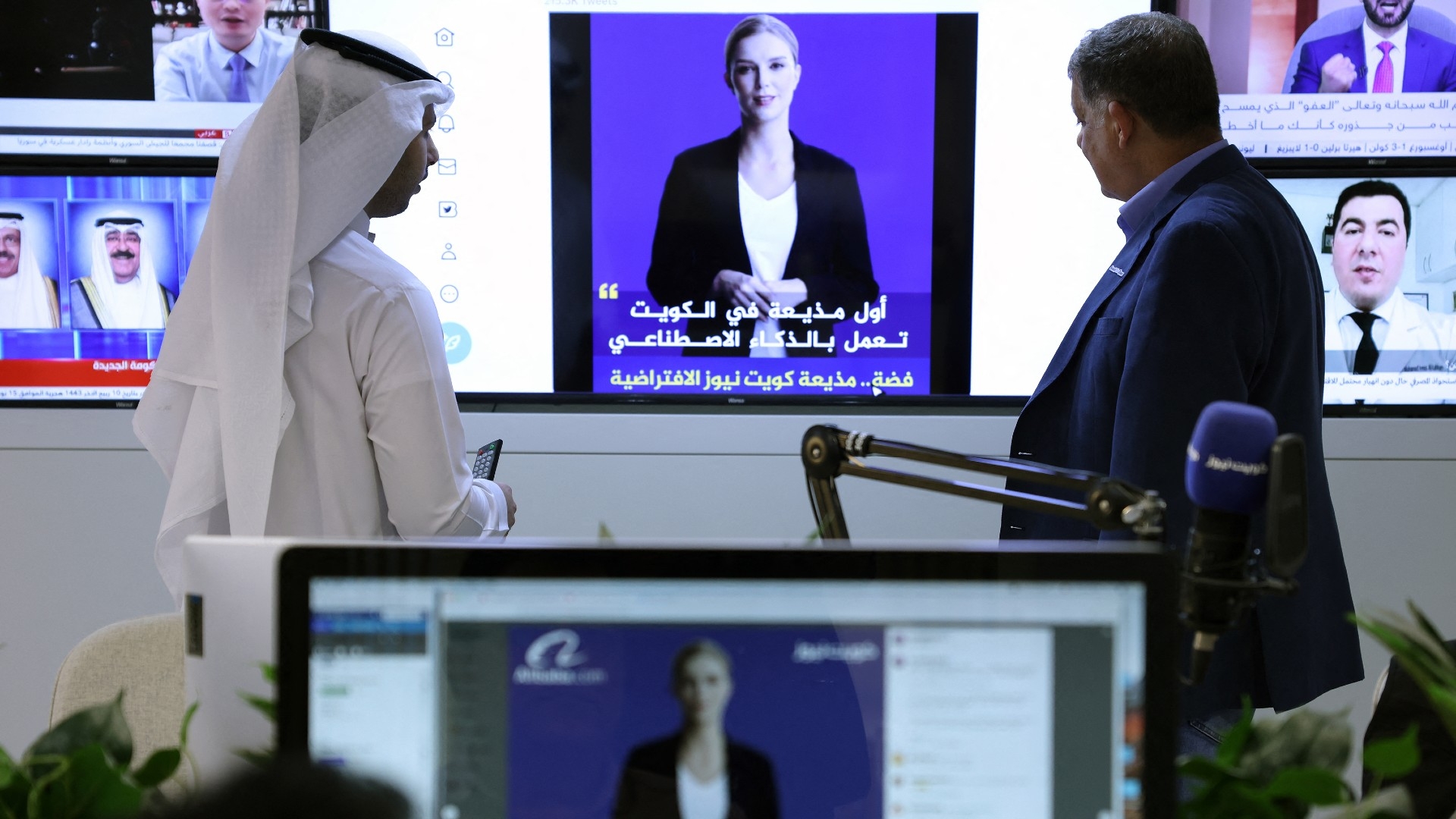Kuwait unveils blonde AI-generated newsreader called 'Fedha'

Meet Kuwait’s newest newsreader: a blonde AI-generated presenter called "Fedha".
The computerised news anchor was introduced by Kuwait News in a video on its Twitter account over the weekend.
"I'm Fedha, the first presenter in Kuwait who works with artificial intelligence at Kuwait News. What kind of news do you prefer? Let's hear your opinions," she says in Arabic.
The blonde-haired and pale-complexioned news host sported a black jacket with a white t-shirt.
Kuwait News is an affiliate of the Kuwait Times, which launched as the Gulf region's first English-language daily newspaper in 1961.
New MEE newsletter: Jerusalem Dispatch
Sign up to get the latest insights and analysis on Israel-Palestine, alongside Turkey Unpacked and other MEE newsletters
Its deputy editor, Abdullah Boftain, told AFP that AI offered the publisher "new and innovative content" opportunities.
He added that Fedha, who spoke in classical Arabic in the launch video, could use a Kuwaiti accent and present news bulletins on Twitter in the future.
"Fedha is a popular, old Kuwaiti name that refers to silver, the metal. We always imagine robots to be silver and metallic in colour, so we combined the two," Boftain said.
The presenter’s hazel eyes and blonde hair reflects Kuwait’s diverse population, according to Boftain. "Fedha represents everyone," he said.
Around 70 percent of Kuwait’s population is made up of expatriates, with the largest communities coming from Egypt and India.
According to government 2018 estimates, 58 percent of the country is Arab, including non-Kuwaiti residents.
The Gulf nation isn’t the first to test out an AI newsreader: China’s state news agency Xinhua launched the world’s first computerised anchor in 2018.
The anchor, named Qiu Hao, said it would report "tirelessly" 24 hours a day and 365 days a year, from anywhere across China.
Experts have said that the Arabic language is poorly represented in AI, partly due to computer scientists' difficulty to grasp the many different dialects.
Voice-activated tech struggles to accumulate enough data on more than 30 Arabic dialects, and therefore computers have mostly only mastered the standardised version.
Middle East Eye delivers independent and unrivalled coverage and analysis of the Middle East, North Africa and beyond. To learn more about republishing this content and the associated fees, please fill out this form. More about MEE can be found here.




